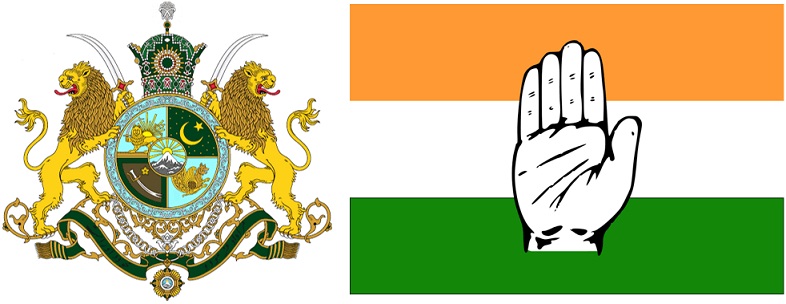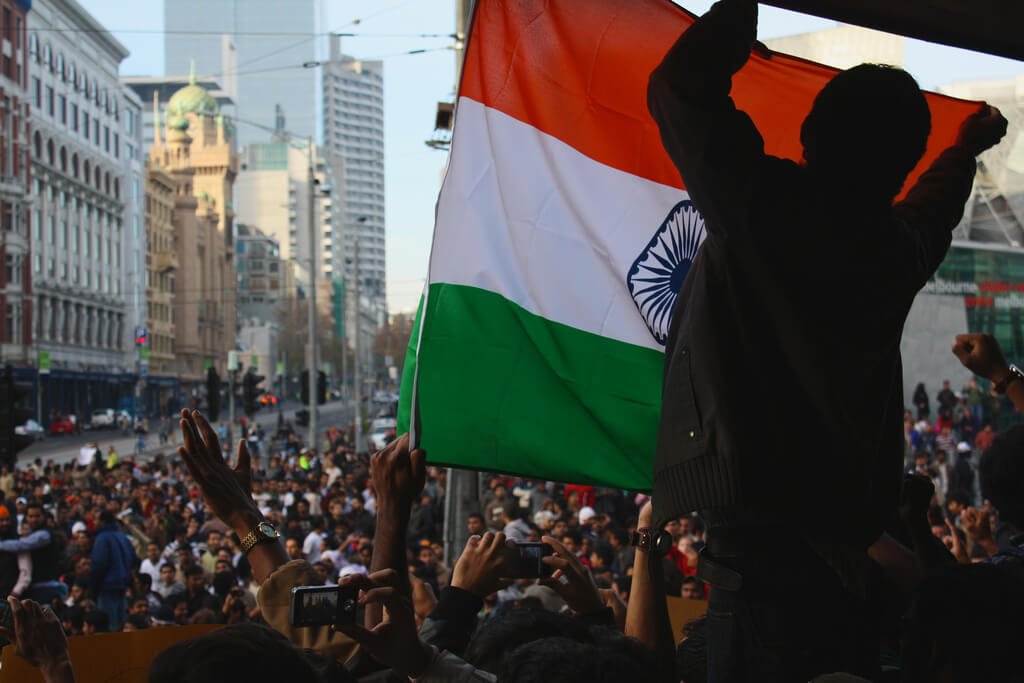There once lived a great emperor by the name, Jalal-ud-din Muhammad Akbar. He ruled over the Mughal Empire which he expanded to include most of the Indian subcontinent. He was born in a life of privilege with his forefathers laying the foundation of the Mughal dynasty. However, Akbar’s forefathers bequeathed him an empire not very large in size. Unlike them, Akbar was born on Indian soil. Having traveled across many parts of India during his childhood for purposes other than military campaigns, Akbar started to love the land of his birth. After gaining power, he started to Indianize the Mughal administration. His kingdom saw the refinement of Islamic architecture with the addition of Indian elements and the launch of a new religion, Din-i Ilahi which was a syncretic creed derived from the principles of all main religions of the subcontinent as well as Islam and Christianity. Under his patronage, Akbar’s court became the most famous gathering of artists, economists, scholars, poets, architects, etc. to date. “Navratnas” as they used to be called were Akbar’s ministers who helped in consolidating his rule across India and added a milieu of cultural diversity.
With his accommodating spirit, Akbar emerged as a genuine ruler of the masses. Akbar understood well that to peacefully rule over the diverse subcontinent that India was, he would have to not only be tolerant but also welcoming of other religions and cultures. He abolished the sectarian tax on non-Muslims and appointed Hindus to high administrative posts to win their trust and loyalty. Sanskrit promotion, the celebration of Hindu festivals, and the abolition of religious conversion to Islam were some steps which went a great way forward in founding the multi-cultural Mughal Empire. For all his achievements, Akbar well deserved the title “Akbar the Great.”
Jahangir, whose fabled romance with the courtesan, Anarkali, has been immortalized by the movie, Mughal-e-Azam , was Akbar’s successor to the throne. Having watched his father’s rule first-hand, he inculcated various good governance-related measures from his father. Jahangir was very fond of art and architecture and patronized many artists who produced great pieces of creativity. However, unlike Akbar who had built most of the empire himself with back-breaking hard work, Jahangir had been bequeathed the same by the event of the king’s demise. He did further consolidate the kingdom but was hostile to many religious traditions. Notoriously, he took up an immoral and ill-timed fight with Sikhs that led to the execution of Sikh Guru Arjan Dev—an unfortunate chapter in India’s history. Moreover, Jahangir had a troubled relationship with his son, Khurram, who was attempting to gain power from the king. In the end, Jahangir left the Mughal Empire more consolidated in terms of expansion but inflicted heavy damage to its foundation. There was much he could have done for the kingdom by following Akbar’s footsteps but he strayed.
Prince Khurram or better known as Shah Jahan succeeded Jahangir to the throne. Shah Jahan was a connoisseur of every luxury that the seventeenth century had to offer. His reign is most remembered for the construction of that most beautiful, romantic, majestic, surreal (and all those qualities which ignite flames of love in human emotions) piece of architecture of them all, the Taj Mahal. Khurram had seen his grandfather during his early childhood but by the time he became king, the stories of Akbar’s rule had become a distant memory. Due to his great intellectual abilities, there were a lot of expectations from Shah Jahan of becoming another Akbar but he could not live up to them. With a modest increase in the domains of the empire, Shah Jahan passed away into oblivion with an aura of grandeur wrapped around a blanket of failures.
Aurangzeb succeeded Shah Jahan to the throne in 1658. By this time, Akbar’s reign was only alive in folklore. Thrice privileged in terms of upbringing and succession to the throne, Aurangzeb was disconnected from the common Indian and the syncretic culture of the subcontinent. His reign saw the expansion of the Mughal Empire and an increase in the fortunes of the kingdom but brought much havoc on the populace. He declared war on the secular fabric of India which led to the eventual demise of the Mughal Empire. While Akbar had worked hard to lay the foundation of a secular India, Aurangzeb demolished it piece by piece. Born to comfort as the son of a privileged father who was himself born in an elitist environment, Aurangzeb’s vision of India was hard to make out beyond keeping power within the first family of the subcontinent. The result was that the empire soon started to break apart and in time fell into the hands of the British who conquered India with ease while she was deep asleep.
There once lived a great leader by the name, Jawaharlal Nehru. He ruled over Independent India which he labored to make free from British rule. He was born to a life of luxury while his father had strengthened the Indian National Congress alongside Gandhi, However, Nehru had to remain in prison for a total of more than nine years in the struggle to free India. Unlike his forefathers, Nehru was educated in England. But, Mother India remained his first love. He traveled extensively across the subcontinent and in time, became the most popular leader in the subcontinent after Gandhi. Nehru’s prime ministership saw the founding of the Indian Republic. He laid the institutions of democracy in a nation whose failure had been speculated by most foreign observers. Under his prime ministership, India prospered economically, the roots of democratic traditions were nurtured and she gained moral respect across the world.
With his accommodating spirit, Nehru emerged as a genuine leader of the masses. Nehru understood well that to peacefully rule over the diverse subcontinent that India was, he would have to not only be tolerant but also welcoming of other religions and cultures. He assured all religious and linguistic minorities that they will be protected and had a stake in nation-building. Assuring security to Muslims, compassionate handling of the refugees coming from Pakistan, and the establishment of linguistic provinces were some steps which went a great way forward in founding the multi-cultural Indian Republic. For all his achievements, Nehru well deserved the respectful title “Panditji.”
Indira Gandhi, who received memorable letters from his father during his years in the prison, immortalized in Glimpses of World History , became the prime minister after the death of Nehru’s successor, Lal Bahadur Shastri. Having watched her father’s rule first-hand, she inculcated various good governance-related measures from her father. Indira was very fond of India’s biodiversity and established many national parks and wildlife reserves. However, unlike Nehru who had built most of the governance machinery himself with back-breaking hard work, Indira had been bequeathed the same by the event of Shastri’s demise. She did further consolidate the Congress Party but was hostile to all opposition. Notoriously, she took up an immoral and ill-timed fight with Sikhs that led to the desecration of the Golden Temple—an unfortunate chapter in India’s history. Moreover, Indira had a troubled relationship with his son, Sanjay, who was attempting to gain power from the prime minister. In the end, Indira left India more consolidated by breaking its adversary Pakistan into two but inflicted heavy damage on its democratic foundation by the imposition of Emergency. There was much she could have done for India by following Nehru’s footsteps but she strayed into a mixture of populism combined with Soviet-style socialism.
Rajiv Gandhi or better known as Indira Gandhi’s elder son succeeded her as prime minister. Rajiv was a connoisseur of every luxury that the twentieth century had to offer. His government is most remembered today for the introduction of information technology, ending violent insurgencies in the North-East, and anti-defection law. Rajiv had seen his grandfather during his early childhood but by the time he became prime minister, the stories of Nehru’s rule had become a distant memory. Due to his great intellectual abilities and youthful persona, there were a lot of expectations from Rajiv of becoming another Nehru but he could not live up to them. Despite some good measures in economic and foreign policy, Rajiv’s rule ended in failures—Bofors, LTTE, Shah Bano, HDW, etc.
Lately, Rahul Gandhi had succeeded Rajiv Gandhi to the throne of the Congress Party after Sonia Gandhi’s rule of two decades. By this time, Nehru’s rule was only alive in folklore. Thrice privileged in terms of upbringing and succession to the throne, Rahul is disconnected from the common Indian and the syncretic culture of the subcontinent. Under his mother’s presidentship, Congress had seen expansion once again during UPA’s 10-year rule but that ended in a series of failures and corruption scandals. Rahul Gandhi’s indecision and inability to bring the Opposition together has brought much havoc on the Indian democracy. His indifference towards the state of the Congress has led to the decline in the fortunes of the grand old party. While Nehru had worked hard to lay the foundation of a strong post-Independence vote-gathering juggernaut Congress Party, Rahul has demolished it piece by piece. Born to comfort as the son of a privileged father who was himself born in an elitist environment, Rahul’s vision of India is hard to make out beyond keeping power within the first family of the subcontinent. The result is that amidst celebrating India’s 71st Republic Day today, the foundation of the Republic of India is the weakest in many decades due to the absence of a healthy opposition.
The only fitting conclusion to this tale can be Arab scholar Ibn Khaldun’s warning that he wrote two centuries before Akbar: “The builder of the glory (of the family) knows what it cost him to do the work, and he keeps the qualities that created his glory and made it last. The son who comes after him had personal contact with his father and thus learned those things from him. However, he is inferior in this respect to (his father), in as much as a person who learns things through study is inferior to a person who knows them from practical application. The third generation must be content with imitation and, in particular, with reliance upon tradition. This member is inferior to him of the second generation, in as much as a person who relies (blindly) upon tradition is inferior to a person who exercises independent judgement.” While the fourth generation “is inferior to the preceding ones in every respect. This member has lost the qualities that preserved the edifice of their glory. He imagines that the edifice was not built through application and effort. He thinks that it was something due to his people from the very beginning by virtue of the mere fact of their (noble) descent, and not something that resulted from group (effort) and (individual) qualities…he sees the great respect in which he is held by the people, but he does not know how that respect originated and what the reason for it was. He imagines that it is due to his descent and nothing else. … He trusts that (they will obey him because) he was brought up to take their obedience for granted…He sows the seeds of his own fall.”

 Perspectives on Indian Nationalism
Perspectives on Indian Nationalism